Netflix, Unilever, Tesco: Everything that matters this morning
Good morning and welcome to Marketing Week’s round-up of the news that matters in the marketing world today.
Netflix slashes subscription price in more than 30 countries
Netflix is cutting the price of certain subscription plans in more than 30 countries as it looks to drive growth across parts of Asia, Europe, Latin America Sub-Saharan Africa and the Middle East.
The UK and US will not be included in the cuts.
It comes as the streaming giant faces increased competition from rivals including Amazon Prime and Disney+ coupled with the rising cost of living causing people to cut back.
Countries where the price of a subscription is being slashed include Malaysia, Indonesia, Thailand, the Philippines, Croatia, Venezuela, Kenya and Iran, according to the Wall Street Journal, which first reported the story.
Netflix, which operates in more than 190 countries, last year launched a less expensive ad-funded option to attract more subscribers.
The firm said it was “pleased with the early results” of the initiative in January, while crediting the rise in subscriber numbers to its content slate.
“Generating conversation is our primary marketing goal because we see that it drives acquisition and encourages existing members to watch more, which in turn helps with retention,” Netflix said in a letter to shareholders at the time.
READ MORE: Netflix cuts prices for subscribers in more than 30 countries
Vauxhall owner claims middle classes can’t afford electric cars
The boss of Stellantic, which owns Vauxhall, has warned that the price of electric vehicles is too high for the middle classes, according to The Telegraph.
“The most significant problem of electrification is the affordability for the middle classes,” says Carlos Tavares, chief executive of Stellantis.
“That’s what we are now fighting against – how fast can we reduce the costs to bring the EV [electric vehicle] to the level of affordability that people can pay for without subsidies.”
It comes as research from the AA shows drivers are losing interest in electric cars, with the proportion of car buyers keen to purchase an EV down from one in four to less that a fifth over the past year as the cost of power rises and petrol prices fall.
The up front cost for a new electric vehicle is also significantly higher than a petrol-powered model. A Volkswagen Gold costs from around £25,000, for example, while prices for a similarly sized EV from the car marque start at £36,400.
Earlier this year Tesla slashed its electric vehicles prices for the first time, with others then following suit. Renault’s CEO Luca de Meo warned last week that Tesla’s decision will have a ripple effect and damage confidence in the wider electric vehicle market.
Marketing Week columnist Mark Ritson has also criticised Tesla’s discounting strategy and accused the electric vehicle brand of damaging the bond of trust it had with its customers.
READ MORE: Middle classes cannot afford electric cars, warns Vauxhall owner (£)
Price of some basics up by as much as 90% in two years
The price of a standard bag of pasta has nearly doubled over the past two years, rising from 50p in 2021 to 95p today.
Working with research firm Assosia, the BBC has been tracking the cost of 15 essential items such as jam, over chips and pasta sauce in Tesco, Asda, Sainsbury’s and Morrisons over the past two years.
The overall basket price has jumped from £15.79 in 2021 to £21.13 in 2023, a rise of £5.34.
A standard jar of strawberry jam has risen from 73p two years ago to £1.15 today, a 57% increase. Similarly, the price of a bag of standard oven chips has jumped 45% over the period, rising from £1.24 to £1.80.
The price of items from supermarkets’ value ranges have also rocketed over the past two years, with pasta up 30%, jam up 39% and oven chips increasing by 38%.
While food price inflation is 16.7%, Kay Staniland, director at Assosia, says the figures show the real price rises that shoppers are having to contend with.
“It’s inflation on top of inflation at the moment,” she adds.
READ MORE: Pasta price doubles to 95p as cost of basics rises
EE’s Hope United returns to tackle homophobic abuse
EE has launched the third instalment of its Hope United campaign, this time with a focus on stamping out homophobia in football.
‘GayVAR’, which is fronted by former footballer Joe Cole and comedian Tom Allen, looks to combat online homophobic abuse, after the mobile network’s research revealed 71% of Brits agree it’s a problem.
The video content series and wider campaign has been created by Saatchi & Saatchi in partnership with charitable initiative Football v Homophobia.
Activity will be shared across social and digital platforms, with GayVAR content posted in response to specific moments that have been found to trigger spikes in homophobic abuse online, such as poor performance from players, dives and losses. As part of the campaign EE will be monitoring social media across three Premier League game weeks to call out such abuse and highlight the “ridiculous and archaic nature of homophobia”, as well as refuting claims it is just banter.
This is the third iteration of the Hope United campaign, which first looked to tackle all forms of online hate, with a follow up ahead of the UEFA Women’s European Championship focusing specifically on sexism in football.
Pete Jeavons, director of marketing comms at EE, says: “The fact that Hope United is now on its third iteration demonstrates the nature of online abuse is as varied as it is abhorrent. As long as online hate exists, Hope United will have a role to play, and EE will continue to use its platform to help create a more inclusive digital society.”
Unilever and Tesco join forces to reduce hygiene poverty
Unilever and Tesco have collaborated with charity In Kind to help tackle hygiene poverty in the UK.
The partnership brings together the in-store activation expertise of Unilever, Tesco’s scale in-store and online, and the distribution network of In Kind Direct, to raise awareness of hygiene poverty and boost donations.
As part of the campaign, when Tesco shoppers purchase two selected personal care products, from Dove, Radox, TRESemmé and Simple, Unilever will donate one on their behalf. These items will then be distributed by In Kind Direct to charitable organisations within local communities across the UK, such as foodbanks, community centres and family welfare associations.
It is the second time the trio have collaborated. Last year, more than 400,000 products were donated between September and October, which supported over 1,391 charities.
“We know that together we can do more,” says Chris Barron, general manager of personal care for UK&I, Unilever.
“By each bringing the insight and expertise of our teams to this campaign and partnership, we can take a more holistic approach to tackling hygiene poverty.”
Oonagh Turnbull, head of health campaigns at Tesco, adds: “Supporting the communities we serve is key to our purpose and now, more than ever, it’s important that we work closely with charities and our supply partners to help make a real difference for people who need it most.”
Thursday, 23 February
Cadbury, Robinsons and Colgate are the UK’s most-considered FMCG brands, according to YouGov
Cadbury has topped the list of most-considered food brands in YouGov’s 2023 FMCG rankings report, with a score of 57.3.
The second most-considered brand in the category is Birds Eye (42.1), followed by Walkers (41.4) and Cathedral City (40.9). Heinz Tomato Ketchup (40) also ranks, followed by Heinz Beanz (36.1), Kit Kat (34.2), Weetabix (33.1), Malteasers (32.6) and McCain (31.9).
YouGov ranks brands based on their respective ‘consideration’ scores between 1 January and 31 December 2022.
Within the beverages category, Robinsons comes top with a score of 33.6. Ribena follows with 25.7, and San Pellegrino scores 24.5.
Pepsi Max (22.2) ranks higher than Coca-Cola (21.4). Meanwhile, Highland Spring has a score of 22, Diet Coke (20.8), Fever-Tree (19.9), Coca-Cola Zero (19.8) and Innocent (19.6).
Colgate tops the list of personal care brands with a score of 43. It is followed by Dove (35.1), Oral-B (30.3), Nivea (30) and Sure (28.6), while Andrex ranks sixth with a score of 26, followed by Kleenex (22.8), Boots No. 7 (22.3), Sensodyne (22.2) and Vaseline (21.3).
More mail was read in 2022’s Christmas period than during rest of the year
More mail was opened (66%), read (77%) and retained (46%) during the Christmas trading period last year than at any other point in 2022, according to the Joint Industry Committee for Mail’s (JICMAIL) Q4 2022 results.
Christmas is a crucial time for retailers hoping to reach consumers. The “healthy open and read rates” for mail can give advertisers reassurance of consumers’ willingness to engage in the channel, says JICMAIL.
While open and read rates have improved, JICMAIL says the effectiveness of the mail channel has been maintained, with a year-on-year increase in mail’s effectiveness at driving brand discussions.
In contrast, the IPA’s latest Bellwether report highlighted direct marketing was being reduced in marketing budgets with a net balance of -0.6%.
In Q4 2021, the stats were 73% for mail being read, 62% opened, and 40% retained in the home and 13% for the mail being discussed with someone.
However, with 5% of mail prompting a purchase in both 2022 and 2021, that figure has stayed the same.
“Although Q4 has presented some challenging market conditions, it is clear that there is as much appetite as ever from consumers to open, read and discuss their mail,” says Ian Gibbs, director of data leadership and learning at JICMAIL.
“Those advertisers that upped their share-of-doormat in the Christmas trading period have no doubt seen this borne our in their results,” he adds.
Starbucks looks to win over Italian consumers with olive oil-infused coffee
Starbucks has launched a line of olive oil infused drinks in Italy as the US coffee giant looks to get the Italian market on-side, after facing a boycott when it first opened up in the country back in 2018.
Starbucks currently has around 20 stores in Italy, and is describing the line as a “revolutionary new coffee ritual”. Howard Schultz, Starbucks’ CEO, described the olive oil coffee as “unexpected, velvety, buttery”.
The chain will be introducing the product line in the certain markets, such as in the US in Spring, followed by the UK, Japan and Middle East later in the year.
“In over 40 years, I can’t remember a moment in time where I’ve been more excited, more enthused that demonstrates the pride, the quality, the passion, the heritage and the craft of what Starbucks can do,” Schultz says.
The Italian market is not an easy one for American brands to crack. In August 2022, pizza chain Domino’s exited the market, having first launched there in 2015.
Music therapy charity Nordoff Robbins refreshes brand identity
 The music therapy charity Nordoff Robbins has announced a new brand identity. The refreshed look is built around its “Break through with music” concept.
The music therapy charity Nordoff Robbins has announced a new brand identity. The refreshed look is built around its “Break through with music” concept.
The charity is changing its name to Nordoff and Robbins to reflect its “unique approach to music”, and founders Paul Nordoff and Clive Robbins who launched the charity 60 years ago.
The new brand identity hopes to expand the charity’s reach and impact while encouraging more supporters to be involved. Nordoff and Robbins worked with design agency Pentagram and digital agency Hex Digital to reposition the brand.
“Making the decision to go through a brand reposition is never taken lightly, but when the evidence presented is clear, you have to take action,” says Nadra Shah, Director of Engagement and Communications.
“Our research told us that the need for music therapy is currently at its highest, but public understanding of the benefits is low. To protect and increase our services we had to change the way in which we communicated our work and its impact.”
The charity now has a brand that will help is “clearly express” its ambition and engage the public, she adds.
Aldi and Tesco join supermarkets rationing veg
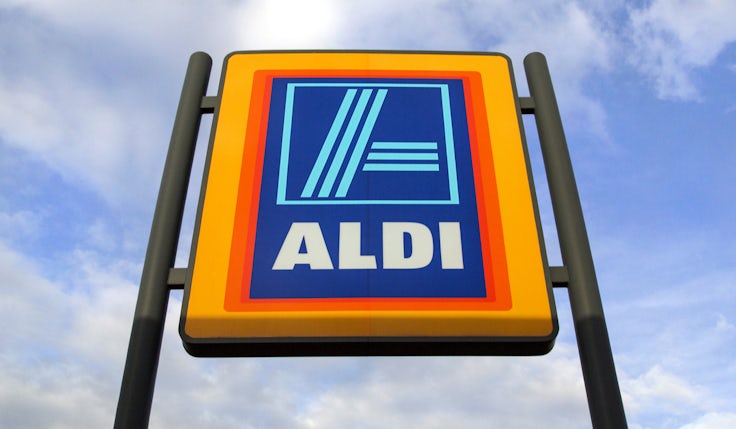 Aldi and Tesco have introduced limits on the amount of certain fruit and vegetables customers can buy, as food shortages continue. The two supermarkets follow in the footsteps of Asda and Morrisons, which also imposed limits this week.
Aldi and Tesco have introduced limits on the amount of certain fruit and vegetables customers can buy, as food shortages continue. The two supermarkets follow in the footsteps of Asda and Morrisons, which also imposed limits this week.
Both supermarkets are limiting purchases of cucumbers, peppers and tomatoes to three packs per customer. Meanwhile, discounter Lidl alongside Waitrose and Sainsbury’s are not introducing restrictions.
An Aldi spokesperson said the supermarket is “limiting purchases of peppers, cucumbers and tomatoes to three units per person to ensure that as many customers as possible can buy what they need.”
The move to restrict consumers is in response to poor weather in southern Europe and north Africa impacting harvests.
The availability of certain produce is estimated to be down 30% and 40% on some crops, catering supplier Reynolds told the Guardian.
READ MORE: Tesco and Aldi join Asda and Morrisons in rationing salad ingredients
Inflation could drop below 2% in 2023
The UK’s inflation rate could fall below 2% by the end of 2023, according to forecasts by investment bank Citi.
Citi says the consumer prices index (CPI) – which was 10.1% in January – could drop to 2.3% by November and 1.6% by December. The Bank of England estimates a level of 4% for this year’s fourth quarter.
With inflation being attributed to rising energy and food costs, Benjamin Nabarro, chief UK economist at Citi, says these factors are now falling at a faster rate than was previously expected.
“That inflation could fall to 2% by the end of the year isn’t implausible,” Martin Beck, chief economic adviser to the EY Item Club told the Guardian.
“The ongoing and substantial decline in wholesale energy prices should translate into falling household bills in the second half of this year, while lower commodity prices and shipping costs will also gradually feed through into prices in the shops.”
However, he notes “significant” risks that could mean inflation doesn’t drop as fast, such as a further escalation of the war in Ukraine.
READ MORE: UK inflation could fall below 2% this year, Citi forecasts
Wednesday, 22 February
Pret A Manger scraps some cold drinks despite subscriber complaints on value
Pret A Manger has scrapped some cold drinks from its menu including frappes, smoothies and milkshakes.
The food chain had received thousands of complaints from customers of its £25 per month drink subscription programme. These subscribers have complained to the brand itself as well as to the Advertising Standards Authority (ASA) that blended drinks are frequently not available, meaning they are not getting full value from their subscription.
Last year, the ASA told the BBC it had informed Pret that its “ads should not state or imply that the service was available in all store locations, or that it covers their entire range of products if that wasn’t the case”.
Pret staff members said the blended drinks took too long to make and some admitted telling customers machines were broken or out of stock at busy periods to avoid making the items. Many stores have slowly removed these blended items from their menus.
In the summer, the blended drinks will be replaced with iced drinks, in a move Pret is calling its “biggest drinks innovation in more than five years”.
READ MORE: Pret A Manger to scrap smoothies, frappes and milkshakes
Ovo Energy appoints BT marketer as brand and marketing director
Ovo Energy has hired BT marketer Alice Tendler as its brand and marketing director.
Tendler is currently group head of brand strategy and marketing communications at BT, a role she has been in since May 2021. Before that she was director of brand marketing, identity and design. She joined the telecoms company in 2016 as a general manager in marketing and brands.
Before joining BT Tendler worked at various advertising agencies, including Mcgarrybowen (now Dentsu mcgarrybowen) as a business director between 2016 and 2019, and Mullenlowe prior to that.
Ovo Energy’s chief customer officer Dan Burdett, who joined the company last year from Pret A Manger, says Tendler’s appointment will aid the company in its mission to go “bigger and bolder” for its customers.
“Alice brings a huge amount of valuable experience at such a significant time for Ovo. She’ll be essential in bringing our Plan Zero strategy to life for customers. I can’t wait for her to get started,” he said.
Tendler expressed excitement at joining a “true challenger in its category”.
“I can’t wait to find fresh ways to bring its story to life and to build the brand through brilliant communications and partnerships,” she says.
Asda and Morrisons ration fresh produce due to shortages
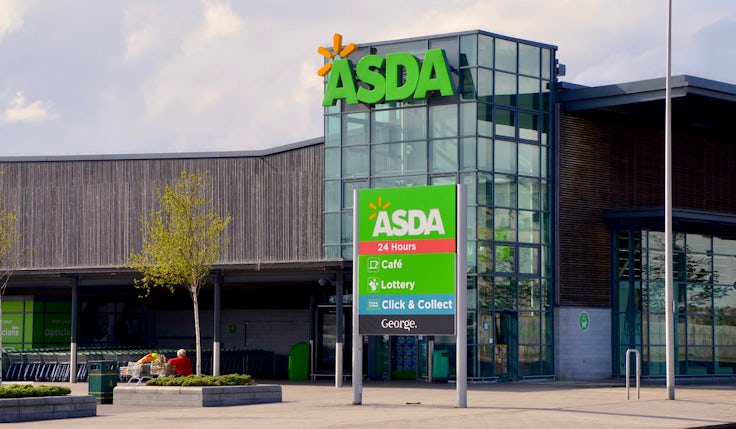 Asda and Morrisons have imposed limits on the amount of some fruit and vegetables customers can buy, due to shortages of certain fresh products.
Asda and Morrisons have imposed limits on the amount of some fruit and vegetables customers can buy, due to shortages of certain fresh products.
Asda is temporarily limiting the purchase of eight produce, including tomatoes, peppers, and broccoli, to three of each item per customer. Meanwhile, Morrisons is imposing limits of two per item on tomatoes, cucumbers, lettuce and peppers.
The decision to ration these fresh product items has been taken after poor weather in southern Europe and north Africa disrupted harvests. Trade body British Retail Consortium has warned these shortages were “expected to last a few weeks”.
Other UK supermarkets are also said to be considering rationing the items affected, Sky News reports.
The National Farmers’ Union had already warned UK shoppers might face shortages in products grown in British greenhouses, due to high energy costs making it unsustainable for some farmers to operate. These greenhouse-grown products include salad items.
The government energy support scheme for energy-intensive businesses does not cover horticulture.
Wizz Air named worst short-haul airline by UK passengers
Fewer than half of UK passengers are satisfied with airline Wizz Air, finds a survey from consumer group Which?.
The brand was named the worst short-haul airline in the UK, with passengers scoring it one star out of five for boarding experience, cabin environment and seat comfort. It scored no more than two stars in each of the other categories, including cleanliness and value for money.
Overall Wizz Air’s customer score was 48%. In December, the Civil Aviation Authority said it had “significant concerns” about the airline. Customers were far more likely to make an escalated complaint against it versus other companies, the regulator said. It also found the airline was delaying paying money owed to passengers.
Ryanair had an overall customer score of 52% and Eurowings an overall score of 53% in the Which? survey. British Airways scored just 56%.
Jet2.com ranked highest out of all those included, scoring 80%. Turkish Airlines was second with 78%.
“While airlines like Jet2.com have distinguished themselves by offering flyers excellent customer care and a reliable service, too many of their competitors continually fail to measure up,” says Which? travel editor Rory Boland.
“If alternative carriers are available for your route, avoid Wizz Air, as its poor record on customer care means you’re likely to be left high and dry in the event your flight is delayed or cancelled.”
READ MORE: Wizz Air worst short-haul airline, say UK passengers
M&S launches dedicated sportswear platform

Marks & Spencer has launched a dedicated sportswear platform on its website as part of its growing focus on the category and its ‘Brands at M&S’ strategy.
The retailer has launched ‘The Sports Edit’ on M&S.com, after it acquired the platform last year. It identified the platform as one complementary to its ecommerce offering, as it is well-positioned in the activewear market and had an engaged customer base.
The Sports Edit brings over 200 sportswear and apparel products across womenswear to the website. The platform has third-party brands including Beyond Yoga, FP Movement, Girlfriend Collective and YMO on it. M&S has promised “more leading brands” will be added throughout the year.
As well as these third-party brands, the platform will also be home to the retailer’s own sportswear brand Goodmove. Launched in 2020, this has grown to become M&S’s biggest in-house brand.
“This year, we’re backing our growth categories with confidence and going into battle on sportswear,” says M&S co-CEO Katie Bickerstaff.
“Building on the strong foundation of Goodmove, we’re combining our brand loyalty with the expertise of The Sports Edit to offer our customers an online sports retail platform which is a one-stop-shop for health and wellness.”
Tuesday, 21 February
Boots kicks off ‘biggest ever’ healthcare campaign
Boots is launching its “biggest ever” healthcare campaign, ‘Our Health Is As Individual As We Are’, in support of women of all ages.
The campaign, which will run for six weeks across TV, digital OOH, print, social, digital, in-store and online, aims to drive awareness of Boots’ healthcare offering. Boots is tying the campaign in with its Price Advantage scheme, by increasing the number of women’s health products included.
Boots wants to highlight the convenience of its healthcare offering by showing a range of female characters experiencing issues from period pain to menopause and cold and flu, who all access products and services through Boots at the end of the film.
“This campaign aims to reaffirm Boots as the leading healthcare business in the UK,” says Boots CMO Pete Markey. Boots’ recent campaigns, outside of Christmas, have focused on the brand’s beauty offering, he says, but now the brand wants to highlight the “full range of healthcare advice, products and services” consumers can access through Boots.
Boots launched its ‘With you. For life’ brand platform at the start of last year, but this is the first time the tagline is being applied to its healthcare marketing.
The brand has doubled the number of healthcare services it offers in the last three years to 125, including more than 15 dedicated women’s healthcare services such as the Boots Online Doctor Menopause and HRT Treatment service. Boots says the latter service has seen a 235% increase in treated orders in the last year.
HSBC makes profit gains
 Banking giant HSBC has posted a profit after tax of $16.7bn (£13.9bn) for 2022, up by $2bn (£1.7bn) on 2021.
Banking giant HSBC has posted a profit after tax of $16.7bn (£13.9bn) for 2022, up by $2bn (£1.7bn) on 2021.
Reported revenues also increased, up 4% to $51.7bn (£43bn), while adjusted revenues grew by 18% to $55.3bn (£46bn).
HSBC’s fourth quarter profits doubled, with the bank reporting profit before tax of $5.2bn (£4.3bn), up from $2.5bn (£2bn) in the fourth quarter of 2021. Adjusted profit before tax grew 92% to $6.8bn (£5.6bn), while reported profit after tax grew from $2.9bn (£2.4bn) to $4.9bn (£4bn).
The company is positive in its 2023 outlook, expecting net interest income of “at least” $36bn (£30bn) this year.
Group CEO Noel Quinn says: “2022 was another good year for HSBC. We completed the first phase of our transformation and our international connectivity is now underpinned by good, broad-based profit generation around the world.”
Boots CMO Pete Markey to chair AA’s Front Foot network
Boots’ CMO Pete Markey has been appointed as the new chair of Front Foot, the Advertising Association (AA)’s network of advertisers, media owners, agencies and tech companies, as outgoing chair Mark Evans, former Direct Line Group marketing director, completes his term.
Markey will lead the delivery of the AA’s various streams, such as Public Trust, All In and Ad Net Zero, while also being the network’s voice on issues such as public trust, talent, inclusion and climate action in line with the association’s three-year strategy.
AA CEO Stephen Woodford calls Markey “one of the UK’s most admired marketers”.
He adds: “As we implement our new 3-year strategy, with a focus on ‘making the case for advertising’, Front Foot’s growing and dynamic network will be a vital, driving force behind securing a sustainable, inclusive, and trusted future for our industry.”
Markey says: “It’s a huge privilege to be taking on this role at such an exciting time for Front Foot and the advertising industry as a whole. I’ve been really impressed with the work done to date under Mark’s leadership and can’t wait to get started with the fantastic team at Front Foot as we help to deliver our exciting plan.”
Outgoing chair Evans led the network for four years, which included the pandemic period. “I am proud of the way in which we have navigated through some choppy waters and emerged from the pandemic stronger than ever,” he says.
Tesco makes ‘biggest ever investment’ in staff hourly pay
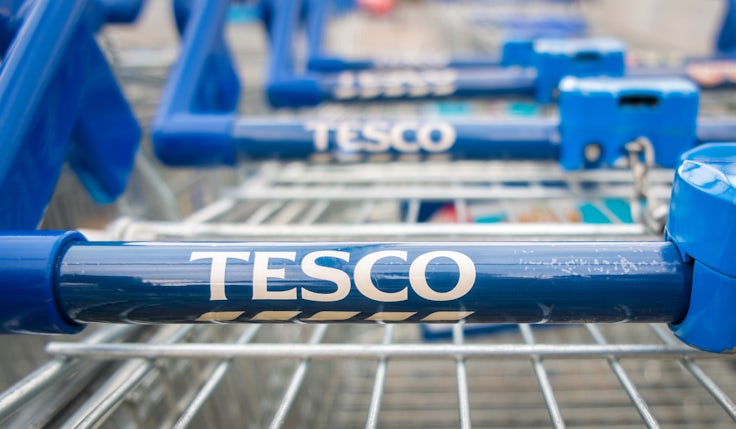 Tesco is introducing a 7% pay rise in its staff’s wages. From April, workers will be paid £11.02 an hour outside of London, up from £10.30.
Tesco is introducing a 7% pay rise in its staff’s wages. From April, workers will be paid £11.02 an hour outside of London, up from £10.30.
The new pay exceeds the national living wage, which currents sits at £9.50 but is due to increase to £10.42 from April for adults over 23.
Tesco will be matching the Living Wage Foundation’s voluntary rate in London’s boroughs of £11.95 an hour, which equates to an 8.4% increase. Staff in outer London will get £11.75 an hour, an increase of 73p.
With these increases, Tesco will jump in front of Aldi and Sainsbury’s, which both pay £11 an hour, as the best paying supermarket. However, Aldi pays for breaks and Asda is planning to increase pay to £11.10 an hour from July.
“We know that many colleagues have felt the pressure of rising costs this year, and we are absolutely committed to supporting them with competitive base pay and exclusive colleague benefits,” says Tesco UK and Ireland CEO Jason Tarry.
READ MORE: Tesco hands store staff 7% pay rise
Whole Earth launches Pancake Day campaign
Peanut Butter brand Whole Earth is encouraging UK consumers to add the spread as a topping this Pancake Day, citing research that suggest just 6% of UK consumers add the product to their pancakes.
The brand has announced a partnership with TV chef Simon Rimmer for the social media activation. Whole Earth is also going to be sampling in Bristol, giving away up to 3,000 bottles of its Drizzler product, which is squeezy peanut butter.
“Peanut butter isn’t enjoying the spotlight it deserves on Pancake Day,” says brand controller at Ecotone, Whole Earth’s parent company, Nicola Turner.
“Through our experiential sampling in Bristol, social and media buzz, we’re on a mission to get more people to discover the great taste of peanut butter as a standalone topping or as a combo.”
Whole Earth is also working with influencers to drive the campaign in its effort to put peanut butter into the top 10 UK pancake toppings.
Monday, 20 February
Morrisons invests further £25m in price cuts
Morrisons is executing another round of price cuts in response to the cost of living crisis, as the price war among UK supermarkets continues to heat up.
Price reductions of almost a fifth on average will take place across a further 64 products, representing an additional investment of £25m. Products include own-brand fresh produce such as potatoes, carrots and lettuce, as well as coffee granules.
Additional promotional deals are also being introduced on lines such as crisps and cereals.
The grocer claims to have invested a total £148m in price over the last six months, with 1,000 products made cheaper in January alone.
CEO David Potts says: “We are just seven weeks into 2023 and already this is our fifth significant price activity of the year. These latest price cuts follow hard on the heels of two notable in store price cuts involving well over 1,000 products, and two strong fuel promotions, demonstrating our determination and commitment to make a positive difference to our customers’ pockets.”
Last year saw Morrisons displaced as the UK’s fourth biggest supermarket by discounter Aldi. Both Aldi and Lidl gained market share rapidly last year as consumers felt the financial squeeze of inflation, achieving a combined market share of 16.3% in the 12 weeks to 26 December compared to 14% in the same period a year prior.
However, last month Morrisons claimed its price cuts were already winning customers back, with like-for-like sales in the three weeks leading to Christmas up 2.5%.
The year so far has already seen Waitrose and Asda take action on price. Last week Waitrose announced plans to invest £100m in reducing the price of over 300 own-brand products, while Asda froze prices on 600 “family favourite” products.
In December, Sainsbury’s announced plans to invest a further £50m into lowering prices.
READ MORE: Morrisons cuts food prices for second time in weeks
Purplebricks puts itself up for sale as loss forecast worsens
Online estate agent Purplebricks is seeking a buyer for its business, as the company forecasts a loss of £15m to £20m this year.
The business originally expected to lose £10m, but has lowered its guidance after finding its strategy to focus on the country’s most profitable regions was more expensive than planned, the BBC reports. Revenue expectations have been cut by £7.5m to between £60m and £65m.
Nevertheless, the company has said it believes the Purplebricks business and brand is of significant value and may be better served under an “alternative ownership structure”.
The news comes after the business hailed the effectiveness of its revamped marketing strategy in December, following new CEO Helena Marston blaming the company’s poor financial results four months earlier on marketing “missteps”.
The business said it was “confident” its new marketing campaign would highlight the benefits of its low-cost proposition, which fits with the current cost of living pressures.
Over the six months to 31 October, the company cut marketing spend by 28% to £10.4m, which included investment in new creative and compared to a “high above-the-line” investment during the same period in 2021.
READ MORE: Purplebricks: Struggling online estate agent puts itself up for sale
Costa Coffee appoints former marketer as CEO
 Costa Coffee has hired former marketer Philippe Schailee as its new CEO, effective from April this year.
Costa Coffee has hired former marketer Philippe Schailee as its new CEO, effective from April this year.
He succeeds Jill McDonald, who left the business last summer to return to fast food chain McDonald’s. McDonald also had a marketing background and previously served as McDonald’s UK CMO.
Schaillee began his own career in Belgium at the now-defunct American consumer goods company Sara Lee Group, where he held various marketing roles. In 2000 he was promoted to executive vice president (EVP) of marketing for the coffee and tea businesses, before becoming senior vice president and chief marketing officer for all of the business’s categories in the US in 2008.
He returned to Europe in 2012 with coffee and tea company Jacob Douwe Egberts group as president of the professional coffee division. He joins Costa from small appliances and cookware company Groupe SEB, where he has served as EVP in charge of products and innovation since April 2021.
“Philippe is an outstanding leader who comes to Costa with a deep background in business and a passion for building great brands,” says Evguenia Stoichkova, president of global ventures for The Coca-Cola Company, Costa’s parent company.
“We look forward to working with Philippe to expand on the plans we have developed to grow Costa, both in its home country of England and beyond.”
Amazon asks staff to return to the office three days a week
Amazon has decided it wants staff to work from the office “the majority of the time”, informing employees they are to do so at least three days a week from 1 May.
Since the second half of 2021, the ecommerce giant’s direct-level leaders have been responsible for deciding where their teams work. The three day a week rule will now apply across all teams, bar a “small minority” of exceptions.
In a blog post shared with employees on Friday (17 February), CEO Andy Jassy said senior leaders had observed that collaboration, invention, learning, and building team connection is “easier” when employees work from the office for most of the week. This has been the case both in regards to new employees and those with longer tenures, he claimed.
“We know that it won’t be perfect at first, but the office experience will steadily improve over the coming months (and years) as our real estate and facilities teams smooth out the wrinkles, and ultimately keep evolving how we want our offices to be set up to capture the new ways we want to work,” he wrote.
“I know that for some employees, adjusting again to a new way of working will take some time. But I’m very optimistic about the positive impact this will have in how we serve and invent on behalf of customers, as well as on the growth and success of our employees.”
Co-op removes best before dates on fruit and veg
Co-op is removing best before dates from over 150 fresh fruit and vegetable products this week, in an effort to limit unnecessary food waste.
The move follows a trial on 20 products last year. Products affected include carrots, onions, oranges, tomatoes, broccoli, potatoes and apples. Store workers will instead identify how long produce has been on shelves using encrypted codes, to ensure consumers aren’t sold items which have passed their best.
According to the BBC, the retailer – which has 2,500 UK stores – said the move would both help customers to save money and help the environment. Food stored in fridges will last longer than best before dates suggest, Co-op said.
Sainsbury’s, Asda and Marks & Spencer all took similar action last year.
READ MORE: Co-op cuts best before date from 150 fruit and veg products



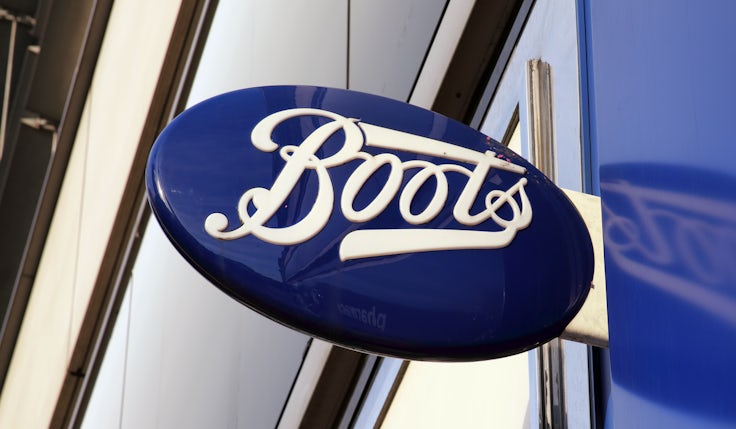


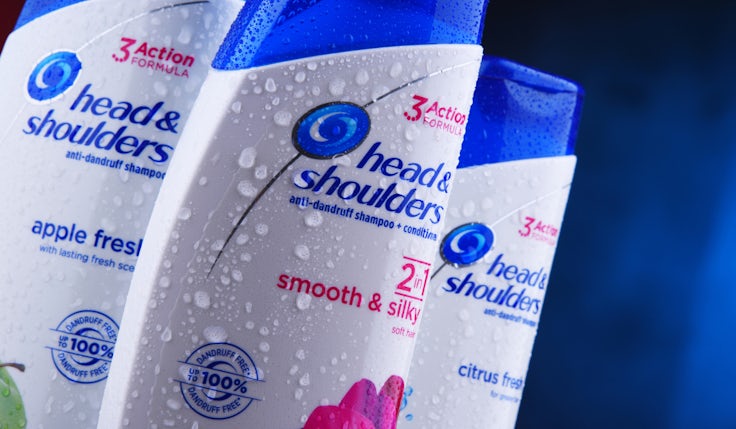





Comments